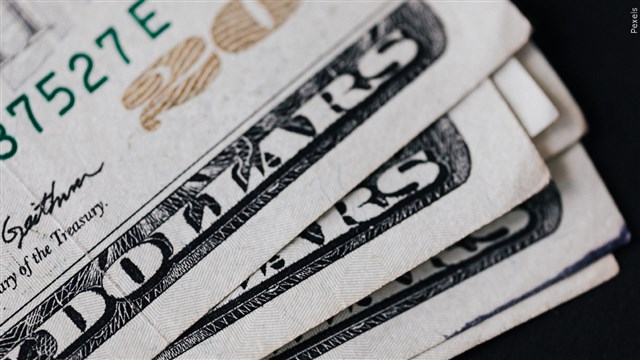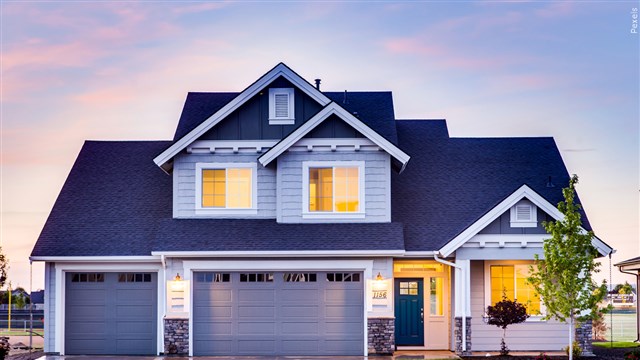The American dream of homeownership has been a nightmare for many Black families. Racist government policies funded White homebuyers in certain neighborhoods while segregating Black homebuyers to other neighborhoods. Crooked lenders targeted Blacks and offered Black homebuyers’ contracts instead of mortgages. A recent Wells Fargo Bank scandal revealed Black borrowers with credit scores over 660 were three times as likely to get a high-cost or high-risk loan as a White borrower.
The list of challenges Black “would-be” homebuyers face has been long and grievous. The pain continues even after a home is purchased. According to a 2020 report by economists Troup Howard of the University of Utah and Carlos Avenancio-León of Indiana University, Black-owned homes are consistently assessed at higher values, compared to their actual sale price, than White homes.
The researchers looked at more than a decade of tax assessment and sales data for 118 million homes around the country and found significant gaps in what Black homeowners paid and what White homeowners paid. The researchers attributed the gaps, where some Black families paid up to $400 more in property taxes, to systemic patterns of housing discrimination.
In addition to higher assessment for property taxes, Black families also face the under assessment of their property values. A Black Maryland couple is suing after their home appraisal was raised by $278K when they ‘Whitewashed’ their home by removing any indication Black people lived there.
In the midst of this structural racism, Bank of America has offered a zero-down payment, zero closing cost mortgage solution for first-time homebuyers. This offer will be available in designated markets, including certain Black and/or Latino neighborhoods in Charlotte, Dallas, Detroit, Los Angeles and Miami. It’s called the Community Affordable Loan Solution and its goal is to help more families get an affordable loan to purchase a home.

“Homeownership strengthens our communities and can help individuals and families to build wealth over time,” said AJ Barkley, head of neighborhood and community lending for Bank of America. “Our Community Affordable Loan Solution will help make the dream of sustained homeownership attainable for more Black and Hispanic families, and it is part of our broader commitment to the communities that we serve.”
For Black families, is this new program the real deal or another offer of smoke and mirrors to lure unsuspecting families into debt and foreclosure? Washington, D.C.-based Richard R. Muhammad has 27 years in the home mortgage business. He told The Final Call, “The program has the potential to be beneficial, but it is very important for people to take a deeper dive into the details because they’re very broad with their language. The program offers no down payment but requires that you purchase in certain areas. You have to be very careful with this type of program because the law of economics says we either pay for things up front or we pay for them over time.”
“This program speaks about no closing costs,” he continued. “However, closing costs is not something that banks determine. They only determine a very small portion of closing costs because closing costs also consist of state and county transfer taxes. These are third-party fees. It’s like going to purchase a car or buy groceries. You will absolutely be required to pay taxes on the transaction. Homebuyers have title company charges, and prepaid interest. You have escrows, which is required to pay your taxes and insurance. When they say it’s no closing costs, I believe that could be a little bit deceiving.”
Mr. Muhammad explained how the government’s Consumer Financial Protection Bureau tells consumers “to know before you owe.” Consumers need to research programs to find the best fit for their family. Do a side-by-side comparison of loan programs, especially first-time homebuyer programs that require little to no money down. Bank of America is not the first to offer a no-money-down program. Their promotions are attractive but what’s behind the glitz and glitter of their offering?
“Keep in mind that this loan program is being offered in select cities where there’s a high concentration of Black and Latino families. This story has been told over and over. What these communities have in common is the lack of infrastructure to actually support the communities where we tend to settle. The schools are not ranked the best, the grocery shopping is not the best. The infrastructure is lacking,” said Mr. Muhammad.
“What you have is a bunch of families with a bunch of houses but not enough services, which creates chaos in the community. Offering incentives to Black families to buy in these underserved communities is one thing, but I would like to hear them talk about funding more infrastructure projects to make these underserved communities more of a desirable place for families to live in, versus what usually happens. Once the infrastructure comes, then gentrification takes place. Then the property taxes get raised and the property value gets raised. Then we get pushed further out,” he explained.
LEGACY Home Loans, the largest Black-led mortgage-banking firm in the nation, headquartered in Las Vegas has also announced their “Special Purpose Credit Program” (SPCP) for Black homebuyers. This program is called “Closing the Gap” and was developed by Black Mortgage Professionals for Black Borrowers. “No one knows our people, like we do,” Ben Slayton, the president and CEO of LEGACY Home Loans, said.
This program is targeting these initial cities: Atlanta, Baltimore, Chicago, Detroit, Memphis and Philadelphia. Borrowers must live in areas of those cities with 51 percent or more Black population. However, this program has no restrictions on where the Black homebuyer can purchase their new home, according to Mr. Slayton.
“Closing the Gap” requires a one percent down payment, offers free appraisal, a free home warranty program, free pre-purchase homebuying counseling, free post-closing homebuying counseling, and financial assistance with closing costs, LEGACY Home Loans explained in a press release.
Lenita McBryde is a D.C. and Maryland Realtor with decades of experience. She told The Final Call, “D.C. has the Home Purchase Assistance Program, which has helped lots of families with financial assistance for down payments and closing costs. Many lending institutions are working to service applicants. No money down programs may be a farce. It may not be real because you always need money to put down. You cannot get a mortgage without proving that you can pay, that you have money in reserve.”
“We don’t want families to return to the same problems we’ve seen previously where people lost their homes because of adjustable-rate mortgages or problematic loans like the no doc loans. People started losing their properties because of them. That’s the main reason why people lost their properties,” Ms. McBryde said.
According to Straton Equities, a no documentation mortgage loan (NO-DOC) is a type of private money loan program that does not require income verification or tax returns from the borrower. Instead, this type of mortgage program is approved on the confirmation to the lender that the prospective borrower can afford the loan payments.
Saving for a down payment is a major hurdle for families, which makes the Bank of America offer so tempting. The Center for Responsible Lending found in their report, “Hardship for Renters: Too Many Years to Save for Mortgage Down Payment and Closing Costs,” that, based on income, a typical White renter household needs nine years, a Latino renter household 11 years, and a Black renter household 14 years to save for a minimal down payment of five percent for a mortgage.
House Financial Services Committee Chairwoman Maxine Waters (D-Calif.) introduced three bills in 2021 to conquer the down payment barrier and help more families have the American dream. The legislative package—the Downpayment Toward Equity Act of 2021, Ending Homelessness Act of 2021, and Housing Is Infrastructure Act of 2021.
“I am introducing legislation that ends homelessness, supports first-generation homebuyers in purchasing their first home, and ensures that housing is infrastructure. Now is the time to finally make housing a top priority and these bills do just that. This historic investment should be included in budget reconciliation as it will change housing as we know it for the better. We’ve waited long enough for housing to be a priority. The time to act is now,” she said.
Her legislation, which is still in Congress, if passed, would provide eligible applicants a $25,000 grant toward a down payment and other home purchase assistance.
—Nisa Islam Muhammad, Staff Writer













